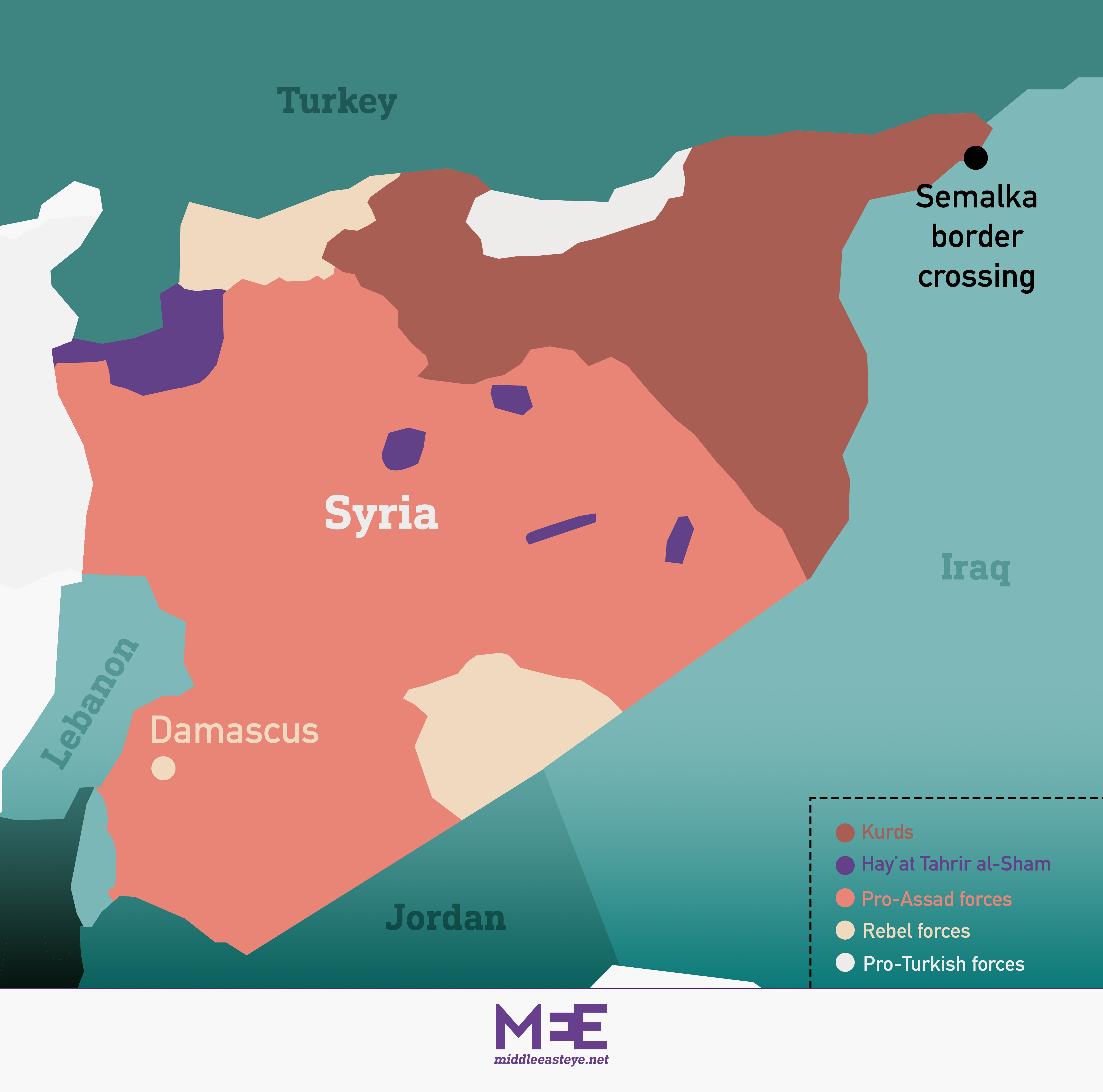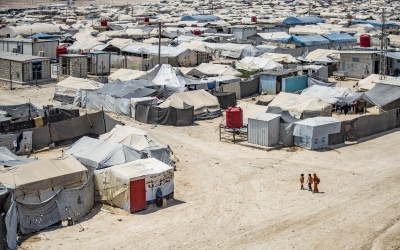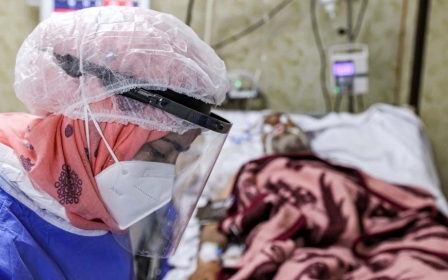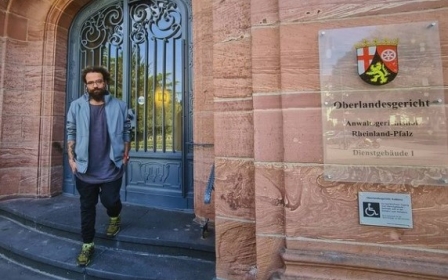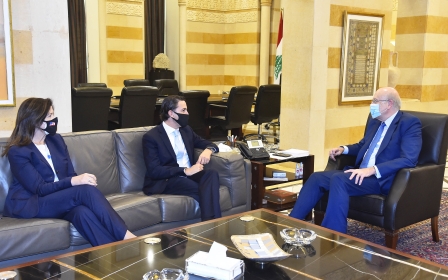Syria: Closure of vital border crossing disrupts aid to 1.8 million in need
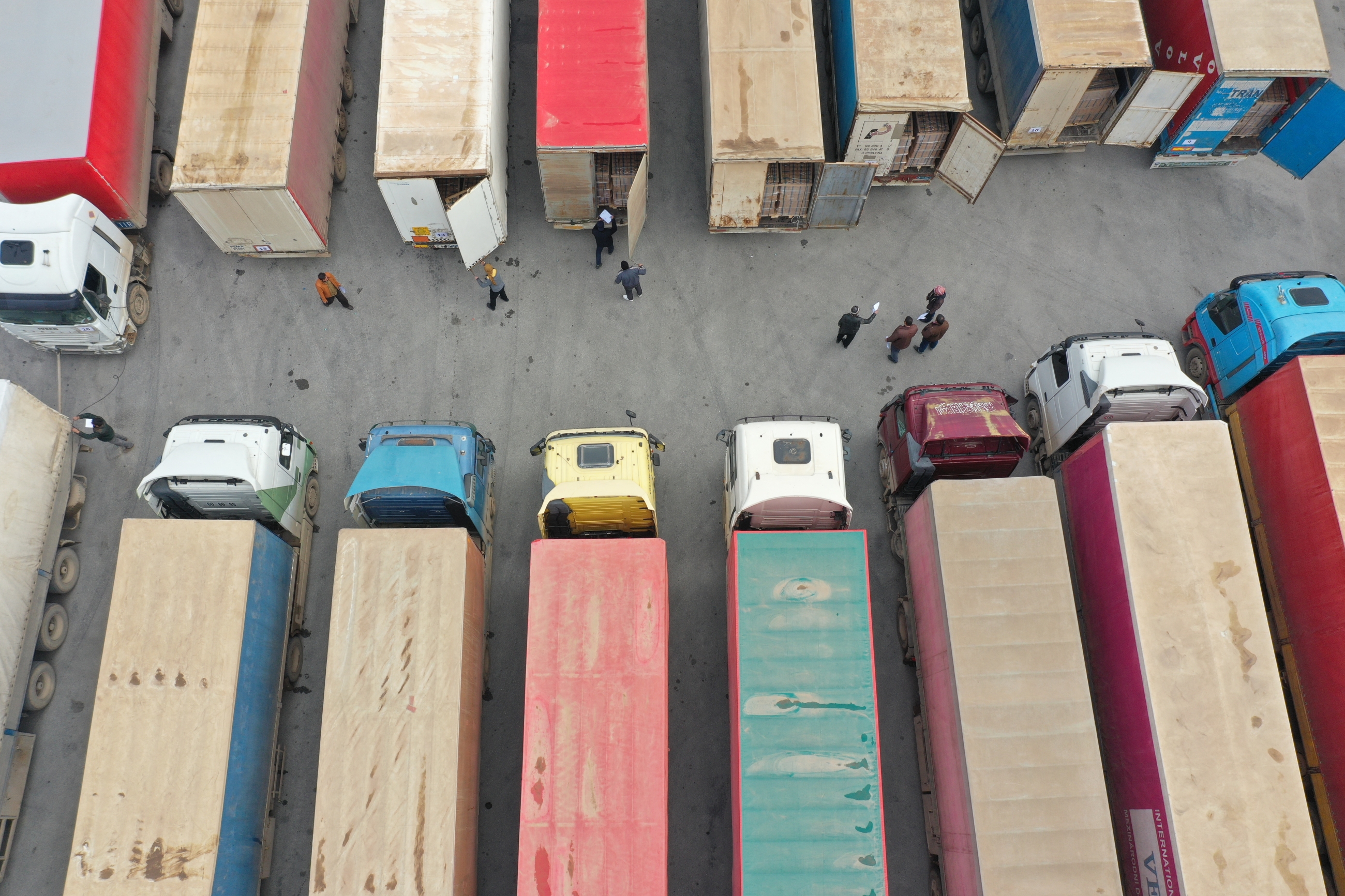
A strategic border crossing between Iraq's Kurdish region and northeast Syria will reopen on Monday, more than a month after it was shut by local authorities, cutting off a vital lifeline for millions in need.
The Fishkhabour-Semalka border crossing, the only transport link that connects northeast Syria to the outside world, "will be opened soon," the director of the United States' Syria Transition Assistance Response Team, Terry Flynn, told North Press Agency on Thursday.
The border crossing has been shut since 15 December, when the autonomous Kurdistan Regional Government (KRG) in Iraq closed it indefinitely following clashes between its security forces and the Revolutionary Youth Union, the youth wing of the Democratic Union Party (PYD), which controls much of Syria's northern region.
The closure of such an important passage has alarmed humanitarian groups, who warned that the move could worsen the already dire living conditions in northeast Syria, where drought, failed crops, water and food shortages have been reported.
Luqman Ehme, the spokesman of the SDF-backed Autonomous Administration of Northeast Syria (AANES), told MEE that the Faysh Khabour-Semalka is very crucial for humanitarian aid and medical cases, after the Al-Yaroubiyeh border was closed in January 2020 due to a Russian vote in the UN Security Council.
“At a time that the AANES administration was expecting for the Semalka-Faysh Khabour crossing to operate 24 hours per day, a decision was made [by the KRG] to shut the border (...).”
He also accused the KRG of restricting border access to diplomats, politicians and civilians since June 2021.
According to ECHO, the European Commission's humanitarian aid operations, "several shipments of essential life-saving health supplies supporting several health facilities in camps and out-of-camp settings" had been stuck following the access point's closure.
"The closure of the Fishkhabour-Semalka border crossing risks having a significant impact on the humanitarian operation in northeast Syria assisting 1.8 million people," said a statement published on 22 December.
Devastated by the region's living conditions, some residents staged protests demanding actions from the authorities. Some have chosen simply to leave.
In the first two weeks of 2022, around 1,500 people arrived at the KRG's Bardarash camp, fleeing the devastating economic conditions in northern Syria as well as continuous shelling from Turkey, Rudaw reported.
Reviving a lifeline
Flynn's comment came after reports that some western countries had been mediating and working with Kurdish authorities to reopen the border.
The US deputy special envoy for Syria, Matthew Pearl, visited northeast Syria earlier this month and met with delegates from the Kurdish National Council (KNC) and the Autonomous Administration of North and East Syria, also known as Rojava.
Pearl spoke about the negative impacts the border crossing closure had on the region's economy and humanitarian situation, North Press reported. Meanwhile, humanitarian organisations have asked KRG authorities to make exceptions at the border on humanitarian grounds, with some success.
'The US has leverage on both Kurdish administrations, as America considers them the US strategic partners in the war against IS'
- Bayar Mustafa, analyst
On 6 January, the KRG permitted Syrians in the Kurdistan Region to return home and wheat to be transported into northeast Syria. The next day, they also allowed some humanitarian personnel and supplies to enter Syria.
Sinam Mohamad, a representative of the Syrian Democratic Council mission in the United States, told MEE that the border crossing is important for the region "as it facilitates the passage of humanitarian aid, in addition to the needs of the camps of thousands of IDPs [internally displaced persons]".
"Closing it affects this aid, so the crossings should be neutralised from politics. I think that through dialogue we can solve all problems. The language of dialogue is always the most effective and good for both sides in KRG and northeast Syria," she said.
Border politics
The closure of the Fishkhabour-Semalka border crossing has revealed the current state of relations between the main powers on either side.
On the KRG side, the ruling Kurdish party is the Kurdistan Democratic Party.
On the other side in Rojava, the dominant party is the PYD, which "could be considered as a sister of the Kurdistan Workers' Party," or PKK, said Bayar Mustafa, dean of the social sciences school at the University of Kurdistan Hewler in Erbil.
The PYD is ideologically linked to the PKK and derives its self-declared policy of "democratic confederalism" from the group's Turkey-born founder, the Kurdish leftist Abdullah Ocalan, who has been in Turkish prison since 1999.
Shortly after the 15 December incident, Iraq's Kurdish border authorities told media that "more than 100 members of the PKK" had attacked their office, while KRG officials blamed "PKK forces" for injuring police officers and damaging cars.
Mustafa pointed out that this is not the first time the border crossing had been closed due to political differences. However, in the past, there were always ways to export basic necessities, including livestock, to the Kurdish region.
"But it's totally closed now, even for oil trade," he told MEE.
The US can play a limited role in piling pressure on Kurdish parties, although trust in Washington has weakened in the region after the Americans withdrew from Afghanistan.
"The US has leverage on both Kurdish administrations, as America considers them the US strategic partners in the war against [the Islamic State]," Mustafa said.
Incubator for 'radicalisation'
A Department of State spokesperson told MEE that the US "hope[s] to see the Faysh Khabour-Semalka border re-open as soon as possible".
"We remain concerned about the impact of the border's closure on the delivery of life-saving humanitarian assistance to vulnerable populations in Syria as well as stability in the region. Our focus remains on alleviating the suffering of the Syrian people and maintaining stability in areas liberated from [the Islamic State], which the border closure negatively impacts."
During his visit, Pearl also reiterated Washington's commitment to keep pressure on the international community to take responsibility for Islamic State (IS) detainees and their families in al-Hol and Roj camps in northeast Syria.
Violence has been on the rise, especially at al-Hol camp, which hosts around 56,000 people. The United Nations recently called for more security measures there after a Syrian Kurdish aid worker was killed during an armed attack at a camp health facility.
According to Save the Children, a total of 40,000 children from 60 different countries were living in dire conditions at these two camps, where an average of two children die every week due to "violence, hardship, deprivation and trauma," the charity said in a report published in September.
Activists say foreign governments need to take urgent action to repatriate their citizens.
Warning also came from the top US military chief in the Middle East, General Kenneth McKenzie, who said that children "in particular" were being radicalised by IS sympathisers within the camp, and that "unless we find a way to repatriate them and reintegrate them and de-radicalise them, we're giving ourselves the gift of fighters five to seven years down the road".
Middle East Eye propose une couverture et une analyse indépendantes et incomparables du Moyen-Orient, de l’Afrique du Nord et d’autres régions du monde. Pour en savoir plus sur la reprise de ce contenu et les frais qui s’appliquent, veuillez remplir ce formulaire [en anglais]. Pour en savoir plus sur MEE, cliquez ici [en anglais].


